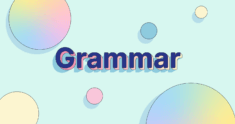
Two commonly misused adjectives are worse and worst. Because these words look and sound similar, it can be tough to differentiate between them—especially since they both mean nearly the same thing as bad.
These adjectives are used to compare two or more things, in fact, the words bad, worse, and worst all refer to degrees of unfavorability. However, their roles in sentences differ, and nailing down how they differ is essential to getting them right.
The word worse is used to compare two things and highlight a negative change or lower quality, while worst is reserved for identifying the absolute lowest quality or most negative state among a group.
Here, we’ll help you understand the key differences between these tricky words so you never mix them up again in your grammar or writing.
What is the difference between worse and worst?
Before we discuss how to use worse and worst correctly, let’s establish clear definitions for each.
Worse: Used to describe a situation, object, or state that is lower quality, less desirable, or less favorable than something else, worse compares one thing to another. Worse is the comparative form of bad, basically translating to “more bad.”
Today’s weather is worse than yesterday’s.
Worst: Used to denote the most negative or inferior condition, worst compares more than two things or a group. Worst is the superlative form of bad, meaning “most bad.”
But that storm last week was the worst I’ve seen.
These words are just like the adjectives better and best, which are the comparative and superlative forms of good. Thus, the crucial difference between worse and worst lies in the degree of badness that each refers to.
How do you use the word worse?
Worse is used when you want to express that something has become less favorable than previously. It is used to indicate a sense of deterioration, decline, or inferiority in relation to another thing or situation.
If an item of clothing, for example, has been washed a thousand times and looks worn down, its quality is worse than when you first bought it, showing a decline in condition. This shows how worse can be used to illustrate a comparison of two states and show an overall decline in condition, quality, or desirability.
How do you use the word worst?
Worst is used to compare a group of things (three or more) and translates to the lowest quality, the least desirable condition, or the most negative among them. As a superlative, the word worst represents the highest degree of badness.
Worst can also be used as a noun, as in “He brings out the worst in her.” As a superlative adjective, though, worst emphasizes extremes and helps to convey the idea that something is at the bottom of the scale in terms of negativity or inferiority.
Examples of worse and worst
Worse:
- Briony’s cold got worse after a few days, so she had to see a doctor.
- His grades have been getting worse as the term progresses.
- The recipe tasted worse after I added vinegar.
- Though Avery skinned his knee, he was none the worse for wear.
Worst:
- The worst part about hiking the trail is the steep incline at the beginning.
- Of all the job candidates, Margaret had the worst interview skills but the best résumé.
- They want a new car in the worst way.
- That was the worst inning of baseball I’ve ever seen.
Worse vs. worst FAQs
What is the meaning of worse?
The word worse is an adjective that’s used to compare two things and indicate a decline in quality, desirability, or condition. In essence, worse suggests a negative change or deterioration.
What is the meaning of worst?
The word worst is an adjective that’s used to compare three or more things and express the lowest possible quality or condition among them. As the superlative form of bad, it conveys a sense of extreme inferiority.
What are examples of worse vs. worst?
Worse is used to compare two things, as in “The pain in my foot is worse today than yesterday,” or “The sequel to the book was worse than the debut.” Worst compares a group of things, such as “He is the worst runner on the team,” or “That was the worst wildfire in the region’s history.”






